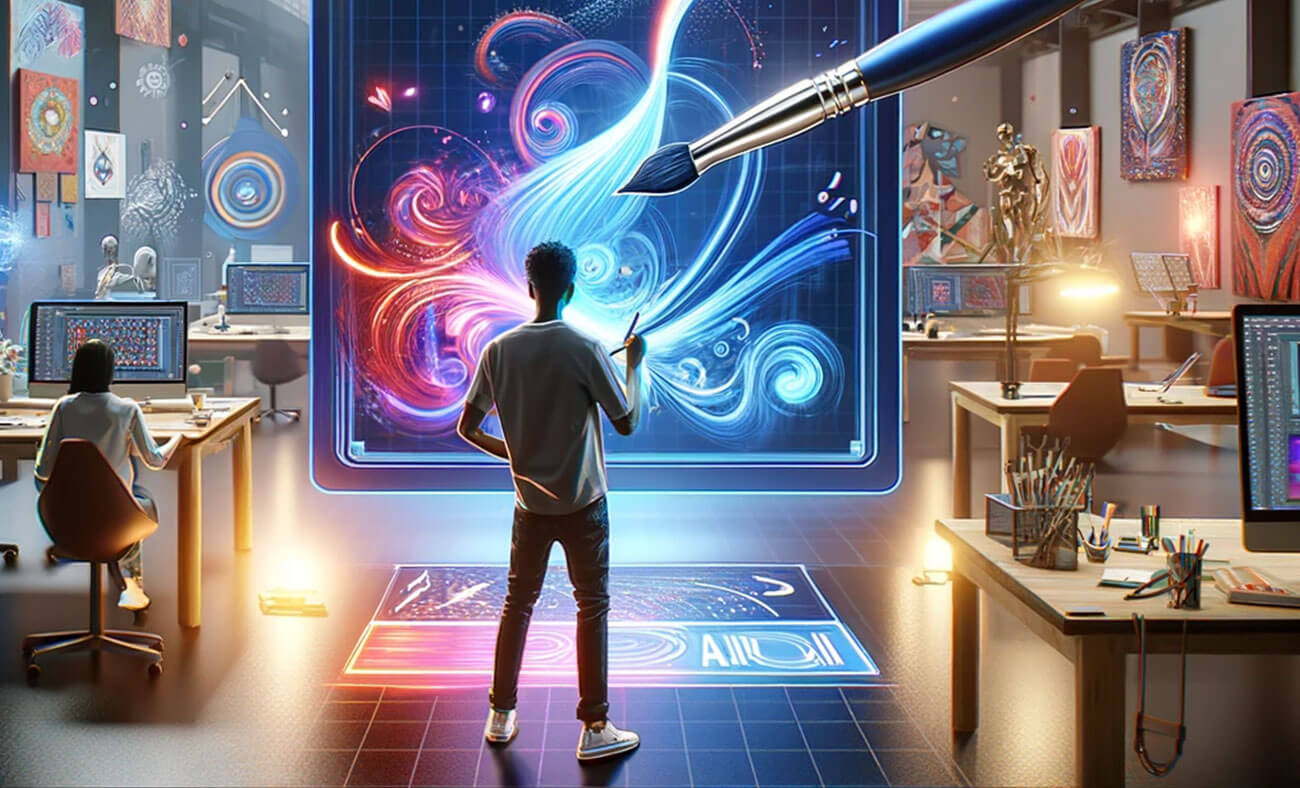
The Future of Creative Work (Or Why I’m Not Threatened by AI)
If I had a dollar for every time I heard that creative jobs will disappear in the future because of Artificial Intelligence (AI), I would be so rich that I wouldn’t need to worry about AI taking my job!
Maybe AI will eventually take over, but let me tell you, this wouldn’t be the first technological revolution the creative fields have withstood.
Just ask my friend Jenette. She used to paint billboards by hand in her early years. As technology evolved, so did she. And there’s no one better at modern design tools now. When digital tools came along, it changed how she worked, but it didn’t replace her. It just became another tool in her creative tool belt.
Technological revolutions are nothing new. There may not be many scribes around now, but the Gutenberg press didn’t do away with human creativity; it transformed it. Photography challenged painters and artists to explore new styles that celebrated the artist’s vision over mere replication. Cinema didn’t destroy storytelling; it introduced a whole new way of telling stories.
None of these technological advances destroyed creativity. They became tools for creatives to do their best work.
The Irreplaceable Human Touch
“Creativity is seeing what everyone else sees and thinking what no one else has ever thought.”
— Albert Einstein
Large Language Models (LLMs) like ChatGPT work by scraping and analyzing incredibly large amounts of text data to learn patterns in our language. They use this data to predict the next word based on the words that came before it. So, when you ask ChatGPT a question, it tries to form coherent sentences by making many of these predictions in a row.
This means that AI, in its current form, is really good at generating things that we’ve trained it on. You know what it’s not great at? Coming up with novel and truly creative ideas.
AI: Another New Brush
Sure, the way we build websites, develop advertising campaigns, and even write will likely be way different in just a few years because of the emergence of AI. The world will change, for better or worse, in many more ways than just through using ChatGPT.
The future is always near, and things will always change. AI will automate tasks, help us analyze trends, and it will inspire art for years to come. Many will even use these tools instead of more traditionally professional methods, but these are the same people who are currently using a template on Canva for their flyer or making a mockery of the word “website” on Wix.
The relationship between humans and AI in the creative process is not one of competition but of collaboration. By leveraging AI to handle mundane tasks, we can free up more space for the inherently human aspects of creativity—conceptual thinking, emotional intelligence, and artistic expression.
AI will never be able to replicate the intuition, passion, and personal touch that defines the work of creatives. AI might look like my 2nd-grade art project in the hands of a novice but appear like magic in the hands of a skilled craftsman.
The Days Ahead (Or Don’t Be Dumb)
Let’s be clear: to ignore the future of AI in any profession or area of life would be foolish. These new tools are going to become ubiquitous. Like the advent of the internet in the last several decades, those who learned to adapt thrived while those who stuck their heads in the sand were left behind.
Change is coming, and it is going to come fast. We would be wise to learn how to use and harness these tools. We have a history of sticking our heads in the sand, resisting change, and being left behind. Let’s not do that again.
I think there are very serious cybersecurity considerations to be made (and I’m incredibly intrigued that our little slice of the world will be on the forefront of that with the upcoming Cybersecurity Center at Marshall). There are serious ethical considerations to think through as the pace of development in AI far outpaces the speed at which we not only ask ourselves “Can we?” but also how quickly we ask ourselves “Should we?” There’s a million other questions to consider with very few obvious answers.
I’m excited for the future of AI and the tools we will have in the creative fields. I hate mundane tasks, and I’m always looking for ways for AI to automate those for me. But, I’m not worried about AI taking my job.